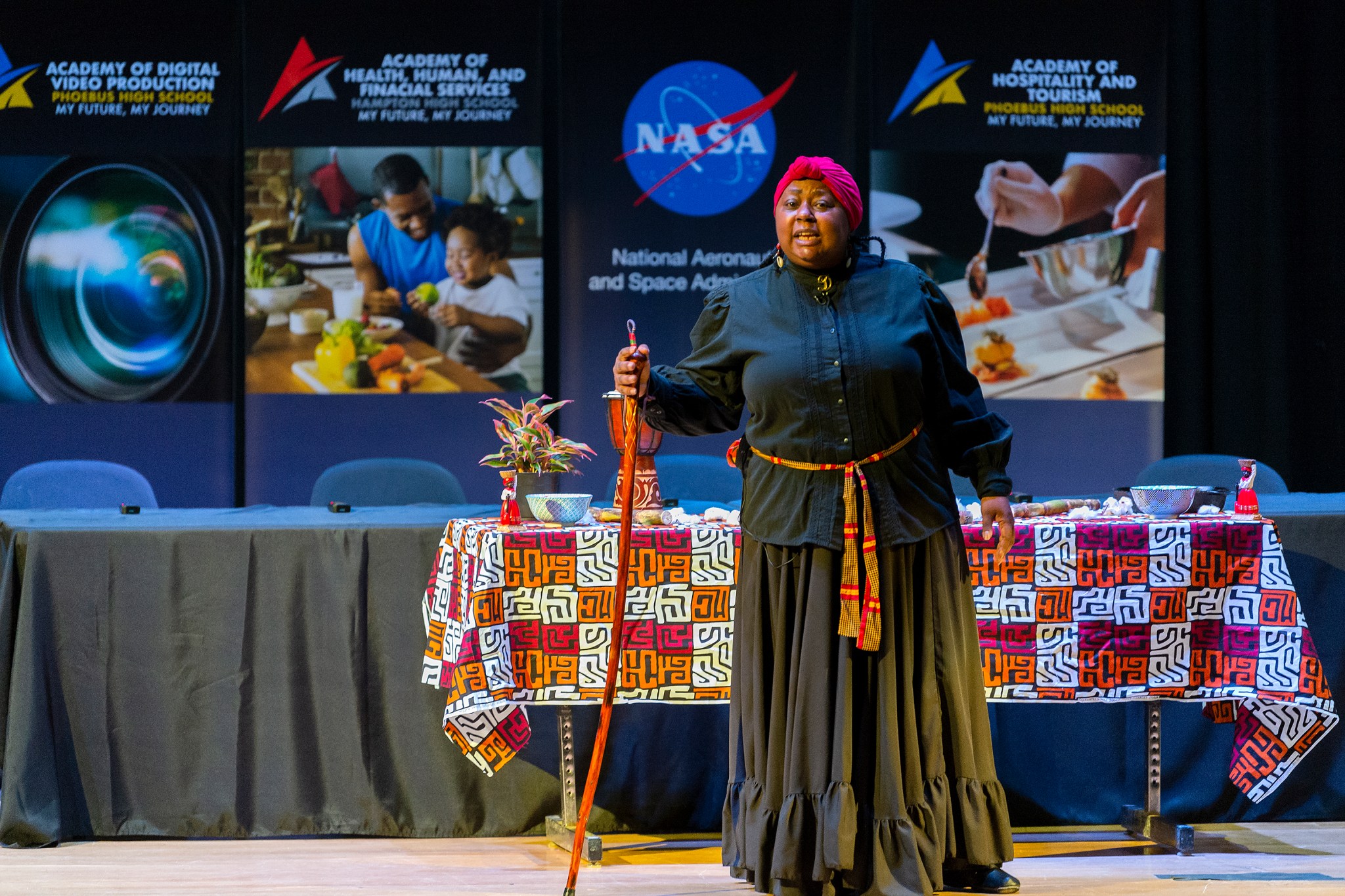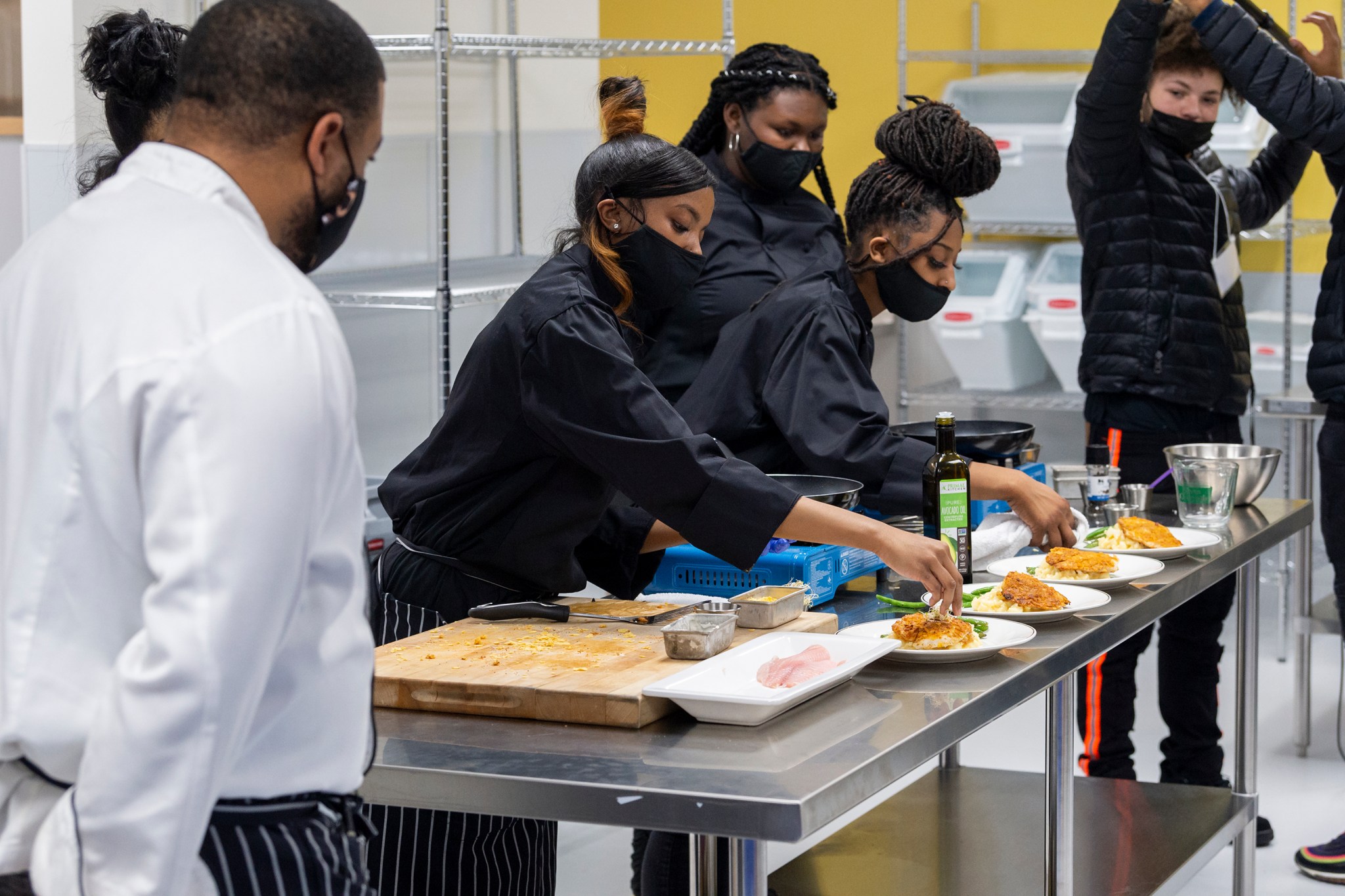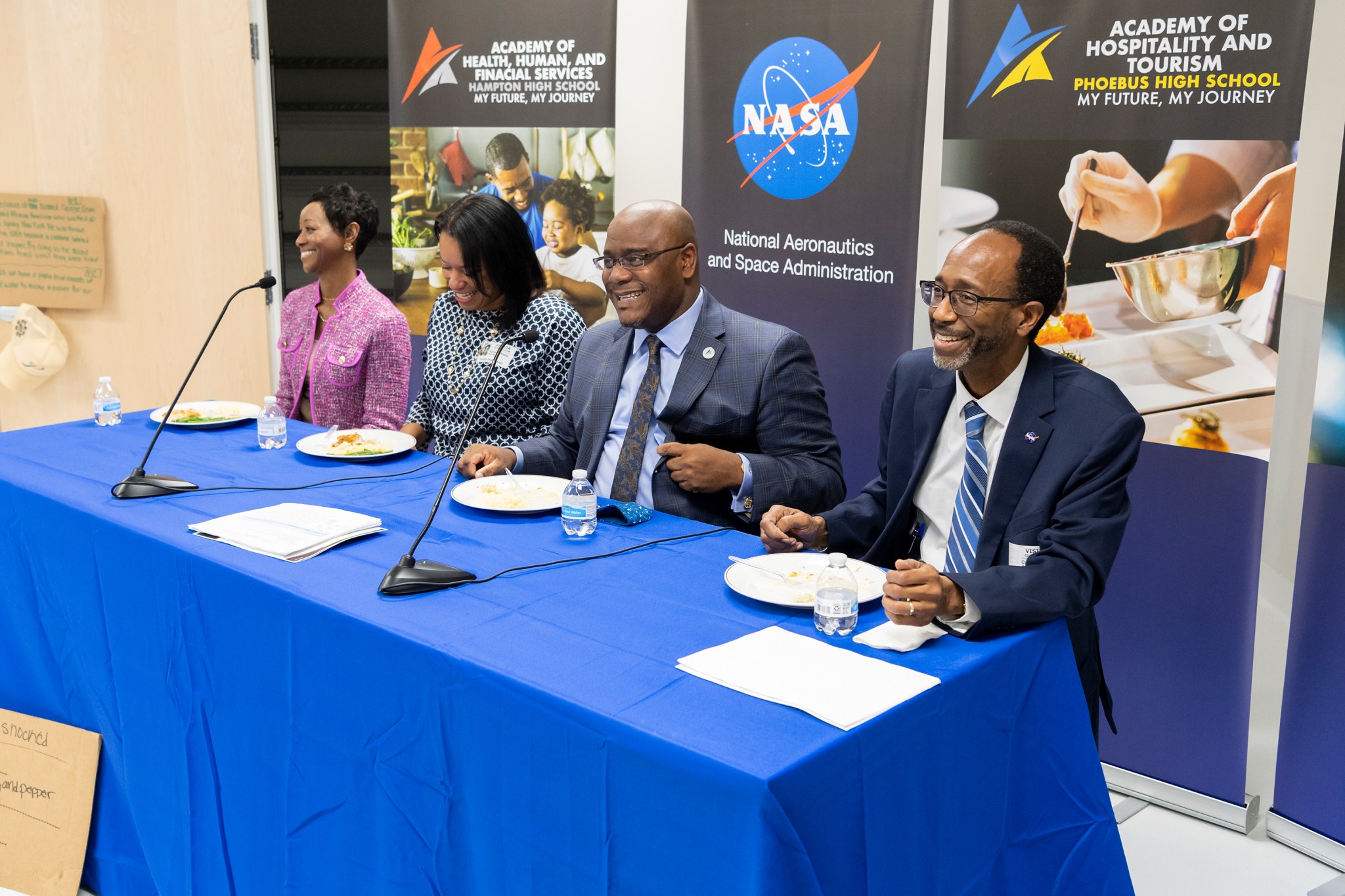A formerly enslaved woman shares how food fed her community’s soul, soothed their deep welts from vicious beatings, and finally helped them resist and escape to freedom.
You could hear a pin drop in the room as storyteller Valerie Yemimah Davis opened NASA’s Black History Month event focusing on nutritional health. The celebration of Black health and wellness was broadcast from Phoebus High School in Hampton, Virginia, to all NASA centers Feb. 16.
Davis embodied the true story of Martha Ann Fields, an enslaved chef on a plantation who led herself and eight of her children to freedom while following Union soldiers during the Civil War. She was ultimately reunited with her other three children, who had been sold off the plantation during their enslavement.
NASA’s African-American Employee Resource Group Collaboration Team sponsored the event, which featured students from Phoebus and Hampton High Schools. Student chefs from Phoebus’s Academy of Hospitality and Tourism led by former NASA Langley Research Center employee Chef Travis Walker, prepared a meal in the student-run restaurant.
“Thank you all for sharing and welcome to the Blue Phantom Inn, where we will send your taste buds to another galaxy,” said Phoebus student chef Makayla Putney.
Langley’s center director, Clayton Turner, and Langley chief financial officer Dr. Kanama Bivins, got to enjoy the results of their efforts.
“I was lucky enough to be a taste tester for their modern and healthy twist on soul food. The food was exceptional, and I was extremely impressed by the thought they put into the menu selection,” Bivins said. “The meal was tasty and held cultural significance. What an outstanding group of passionate students!”
Other students from Hampton High presented a skit centered around the importance of Sunday dinner in Black family culture. Actors representing several generations gathered together to discuss tradition, stress, and the under-representation of people of color in health and wellness professions such as psychiatry.
“This table, it’s more than just a piece of wood. It represents the connection between each member of the family,” said event emcee A’kiera Grant of Hampton High. “The family comes together to share their roses and thorns of the week. This beautiful display of communion powers the stability of the Black community.”
In another performance, female students interpreted Maya Angelou’s poem Phenomenal Woman, crafting a poignant spoken word performance giving voice to the struggles young Black women face trying to conform to society’s standards of beauty. They ended the segment with strength, learning to love themselves for what makes them each unique and powerful.
Students were essential behind the scenes as well, working the cameras, lights, sound system, and other aspects of the production so it could be shared with NASA’s workforce across the agency.
Turner was impressed with what he witnessed.
“As NASA returns to the lunar surface to live and work, as we enable supersonic flight that will get people to their destinations in half the time, and as we improve the health of our home planet, these are the students who will make that happen,” he said. “This is the Artemis generation. If you want to be excited by our future, start here with these students.”
Indeed, the students are up to the challenge. Axi Chambers, a Hampton High student who performed in the program, was excited to meet Turner. Posing for photos, she turned to him and said, “One day, I’m going to have your job.”
April Phillips
NASA Langley Research Center



























